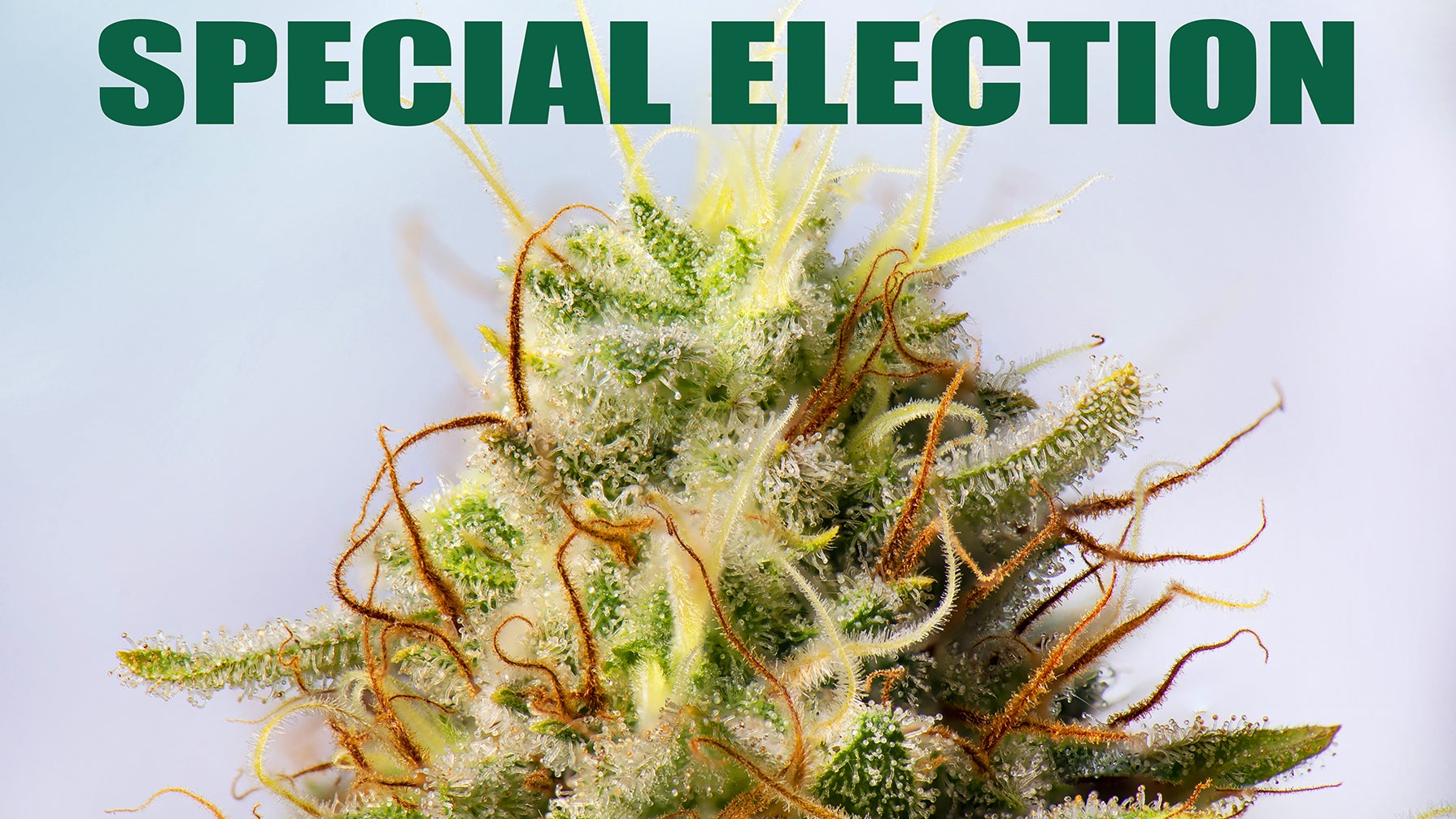What’s up with the cannabis election? Part 2 of 2
Published 4:00 pm Sunday, August 14, 2022

- TDL IMAGE Medical marijuana special election
This is Part 2 of a 2-part series. The first part talked about the original 2020 election and where medical cannabis became legal in Mississippi.
The registered voters of Lincoln County will vote on allowing medical cannabis in a special election Aug. 30.
The election will have only one issue on the ballot — referencing the Mississippi Medical Cannabis Act SB2095 — and will have only two options, “for” or “against.”
A voter who wants to allow the “cultivation, processing, sale and/or distribution of medical cannabis in Lincoln County” will vote FOR. This is considered a “yes” vote.
A voter who does not want to allow the “cultivation, processing, sale and/or distribution of medical cannabis in Lincoln County” will vote AGAINST. This is considered a “no” vote.
Who pays for this
special election?
The taxpayers of Lincoln County will pay for this election, as a separate event. A special election is typically attached to a regular election. However, the time frame did not allow for the cannabis vote to wait until November for the General Election.
Once Bairfield’s office had certified at least 1,500 of the submitted petition’s 4,200-plus signatures had come from qualified electors of the county, he presented it to the Board of Supervisors at their regular July 5 meeting.
“That means we have to set a date for a special election after 45 days of the certification,” Bairfield told the Board. The supervisors voted to set the election for Tuesday, Aug. 30.
“It feels good,” said Timothy Gipson, a Lincoln County voter and member of the Stop the Opt group that collected the signatures for the petition. “We want people to get out and vote. One of the supervisors had said the people didn’t know what they were voting for. If people get out and vote again and this passes, it is showing the supervisors they do know what they were voting for.”
In the 2020 election, 9,184 registered voters in Lincoln County — 54.22 percent ¬— voted in support of a medical marijuana initiative.
New voters must register no later than Monday, Aug. 1, in order to be able to vote in the special election. Absentee voting in the Circuit Clerk’s office will begin Monday, July 18, during regular office hours. Absentee voters will also be able to cast ballots on two Saturdays — Aug. 20 and 27, from 8 a.m. until noon. Mail-out absentee voting will also begin Monday, July 18, for those age 65 and older, disabled, military or temporarily living outside the county (work-related or students).
To register to vote, visit the Circuit Clerk’s office or register at vote.org.
The business side
Medical marijuana products would fall under the state’s existing 7 percent sales tax. Supply stores are already on the rise in the country – and one will open up in an former 40,000-square-foot restaurant supply warehouse near Jackson.
Cultivators will be able to sell their crop to the highest bidder. They just have to ensure they follow federal and state laws, which include growing into a contained area and ensuring all documentation of their production is up to date. For communities that opt out, patients can go elsewhere to purchase and can legally bring their products back into their opted-out community.
Dispensaries will pay taxes as well as make a profit. The law said that medical cannabis products will include cannabis extracts and flowers; edible and topical cannabis products such as oils, tinctures, suppositories and ointments. Mississippi Today reported that “large cultivators with more than 100,000 square feet of growing space will have to pay a $60,000 application fee and $150,000 annual license fee. Dispensary business owners … will have to pay $15,000 to apply for a license to sell and an annual fee of $25,000, regardless of the businesses’ size.”
Other businesses that could pop up include high-end security and transportation services and waste disposal companies. Each one brings new tax dollars to the people of the county that oversees these entities.
Patients will be able to legally buy a little relief. When, on Feb. 2, Gov. Tate Reeves signed legislation legalizing medical cannabis, the new law promised that sufferers of certain disorders and diseases could treat their symptoms with “medical cannabis.” Those diseases include AIDS/HIV, ALS, Alzheimer’s disease, autism, cachexia or wasting syndrome, dementia, cancer, chronic pain, Crohn’s disease, hepatitis, Huntington’s disease, muscular dystrophy, Parkinson’s disease, post-traumatic stress disorder, sickle-cell anemia, seizures, severe or intractable nausea, severe and persistent muscle spasms, and ulcerative colitis.





